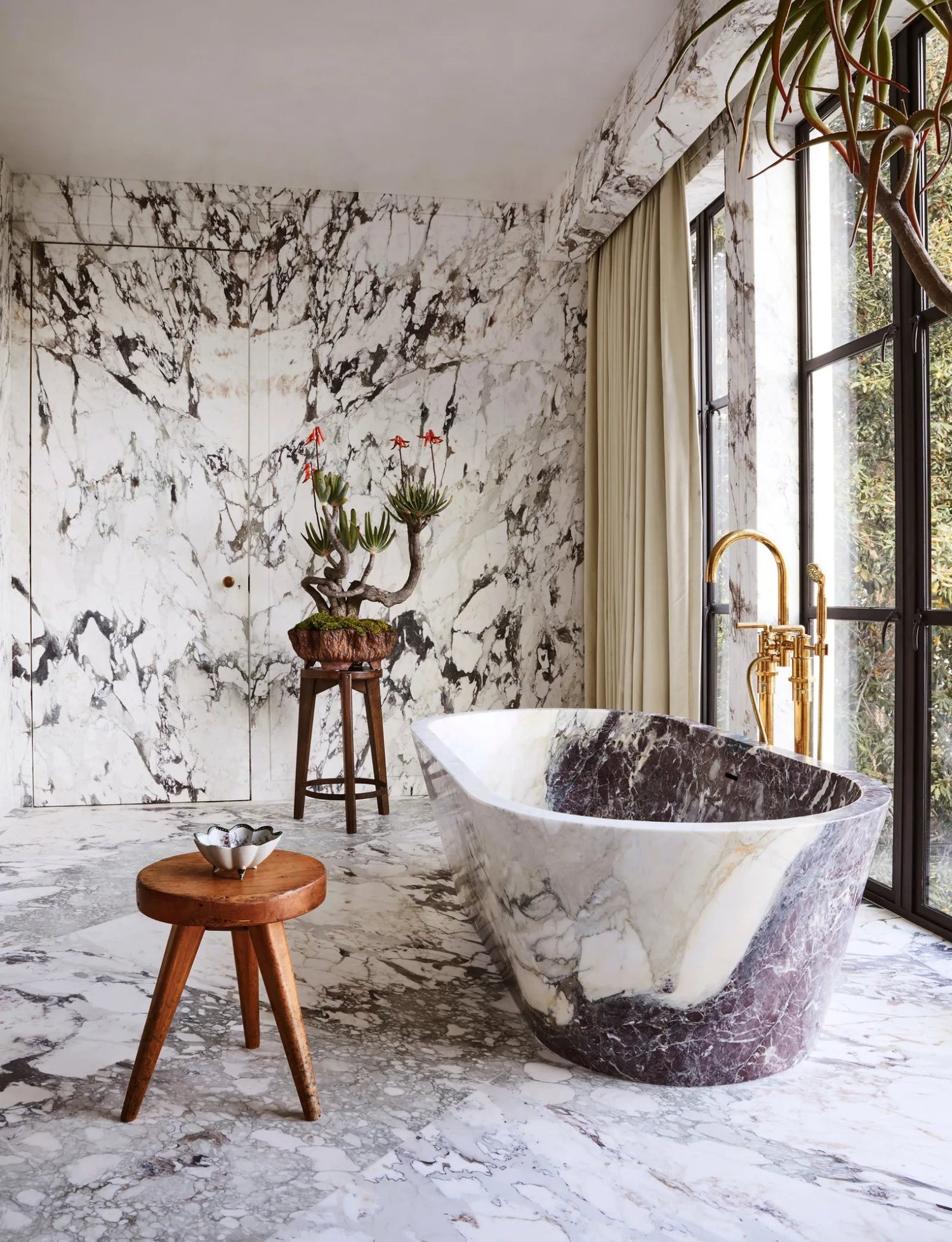In today's eco-conscious world, furniture design is increasingly aligning with sustainability principles. Furniture manufacturers are now tasked with making mindful choices that minimize environmental impact, focusing on eco-friendly materials and production processes. One material that stands out for its sustainability is marble.
Why Marble is an Environmentally Friendly Choice
Marble, a natural stone, originates directly from the earth, making it inherently sustainable. It offers not only exceptional beauty and elegance but also serves as one of the most eco-friendly materials available. As a long-lasting option for furniture, marble has the unique ability to reduce waste and lower environmental impact over time.

The Longevity of Marble Furniture
One of the primary reasons marble is such a sustainable material is its durability. When you invest in marble furniture, you're likely to have it for decades without the need for replacement. Unlike furniture made from processed wood or alloys, which wear down over time, marble does not deteriorate or decay. This extended lifespan helps reduce the frequency of furniture replacements, ultimately minimizing waste and conserving resources.
Timeless Design and Customization Potential
Marble's appeal is also timeless. For example, a marble tabletop can endure for generations, while the table’s legs can be easily updated to refresh the furniture’s look. This adaptability allows you to maintain a piece of furniture for years while still keeping your home’s aesthetic current.

Sustainability Through Reduced Consumption
To be truly sustainable, furniture must be of high quality and support a lifestyle that minimizes energy and resource use. One effective way to lower our environmental footprint is by reducing the physical size of our living spaces. Furniture that lasts for a long time—and doesn’t end up in landfills—helps in reducing our overall consumption of resources.
Even if a piece of furniture is crafted from responsibly sourced materials, it’s not truly sustainable if it deteriorates quickly and contributes to waste. Marble furniture, however, exemplifies sustainability through its long-lasting nature and minimal environmental impact.

Technological Innovations in Marble Production
Advancements in technology have further improved the sustainability of marble. Today, cutting-edge techniques allow for optimal use of the stone, minimizing waste to nearly zero. Whether it's for marble countertops, dividers, backlit walls, or dining tables, modern processes ensure that every bit of marble is used efficiently.
How Marble Furniture Contributes to Sustainability
Minimal Production Impact
Unlike many manufactured materials, marble is a naturally occurring stone that requires minimal processing. Marble’s preparation for home installation requires fewer chemicals and less energy than synthetic materials. This makes marble a more eco-friendly option, as it doesn’t rely heavily on industrial machinery or synthetic compounds.
Job Creation and Local Economies
The marble industry also has a positive impact on employment. Since marble is harvested by hand, it creates a range of job opportunities, from quarry workers to artisans who craft and install marble pieces. By supporting jobs that rely on manual labor, marble production helps bolster local economies and reduce the need for high-tech machinery.
Low-Chemical Sealants for Marble Furniture
While marble is naturally durable, it requires sealing to maintain its appearance and protect it from damage. Fortunately, the sealants used for marble furniture are low in chemicals, further reducing the material’s environmental footprint. Additionally, marble’s natural resilience means you can clean it with just a damp cloth and mild soap, avoiding the need for harsh chemical cleaners.
Recyclability and Reduced Waste
Another key benefit of marble is its recyclability. If you ever decide to replace your marble countertops or flooring, the material doesn't need to be sent to a landfill. Marble can be repurposed into new products, such as tiles or other stone-based items. This ability to reuse marble further supports its sustainability, keeping valuable resources in circulation rather than contributing to waste.
By investing in marble furniture, you're not only adding elegance and durability to your home, but also making a conscious choice that benefits the environment. The combination of longevity, minimal environmental impact, and recyclability makes marble an exceptional choice for sustainable living.





